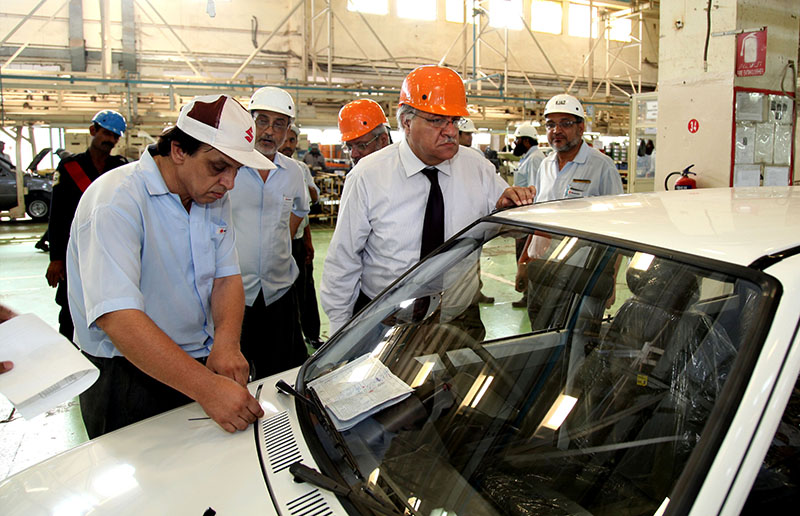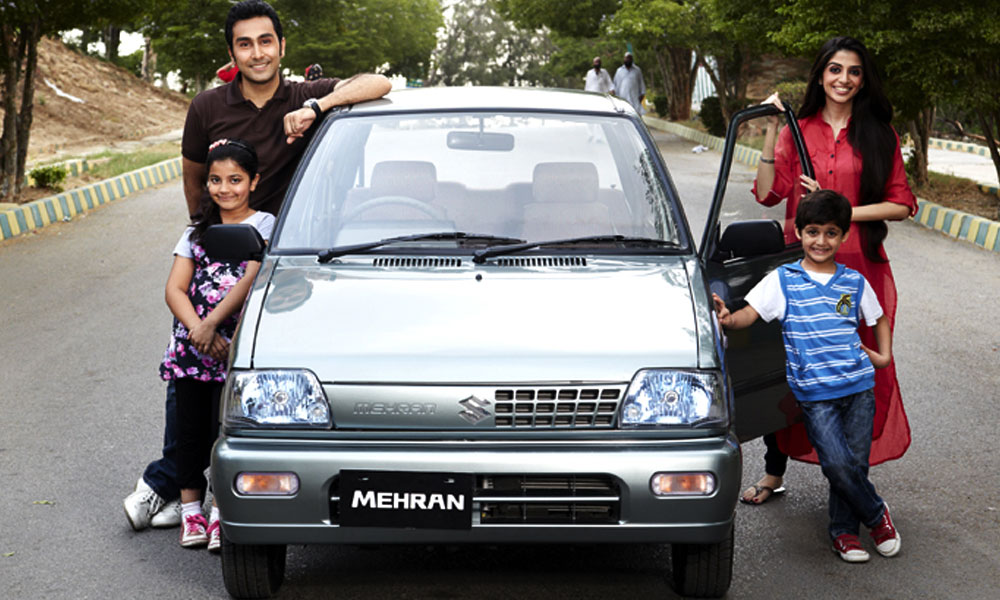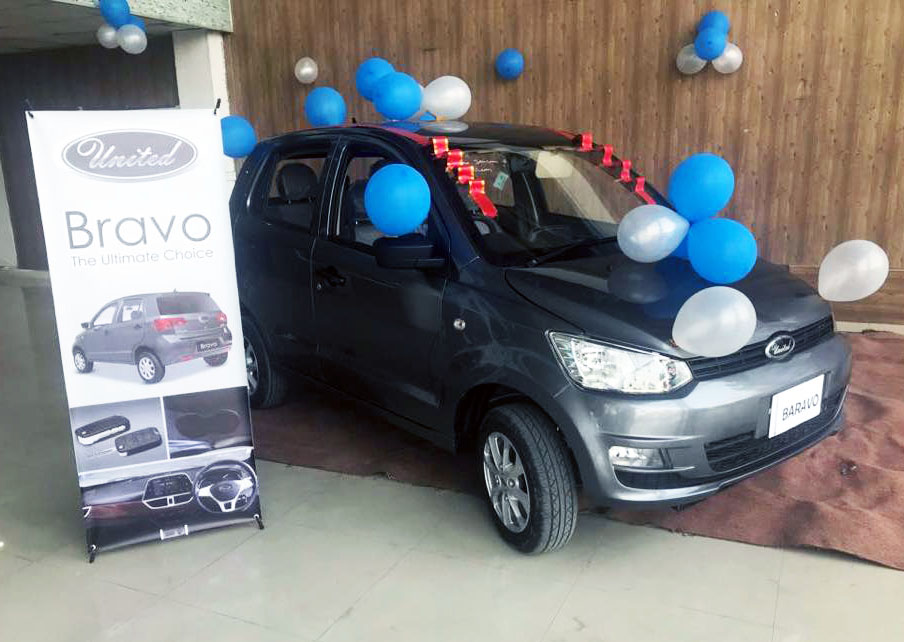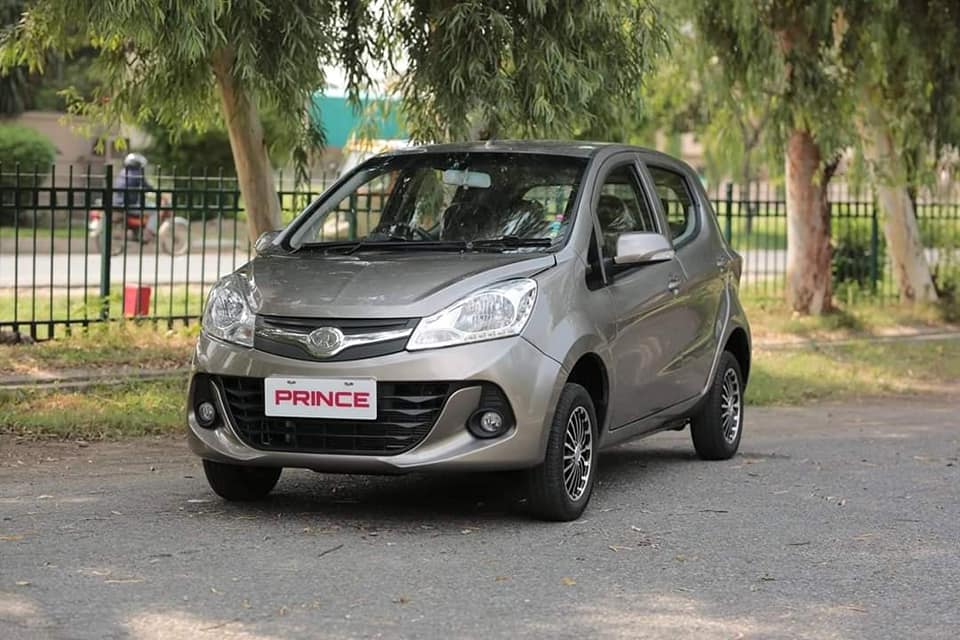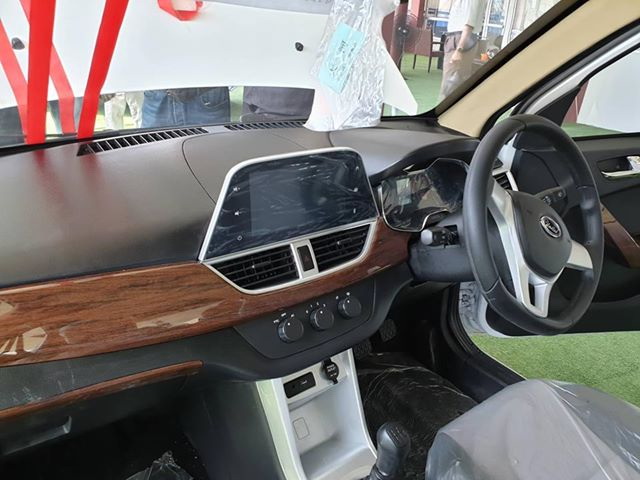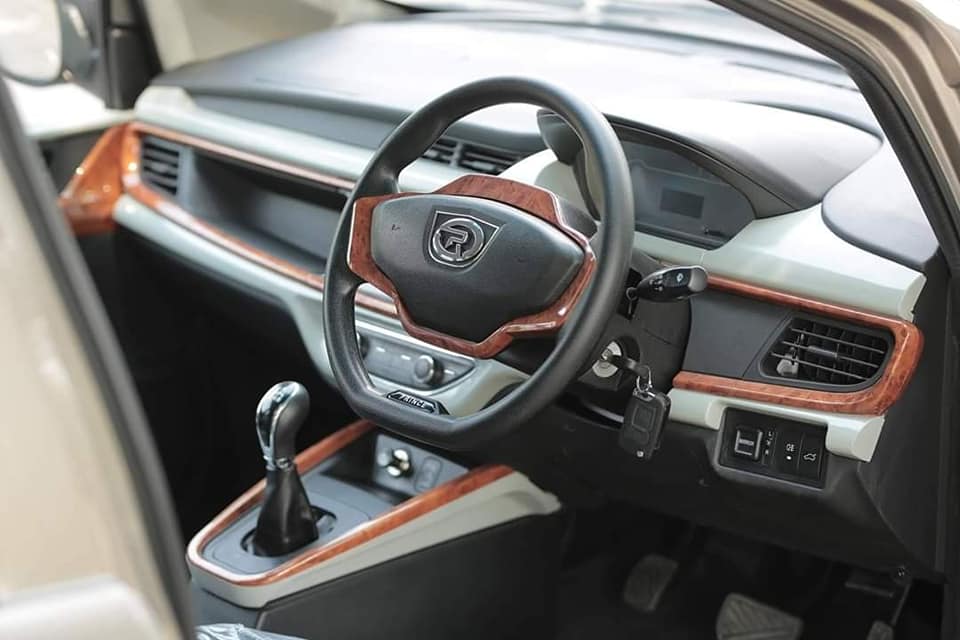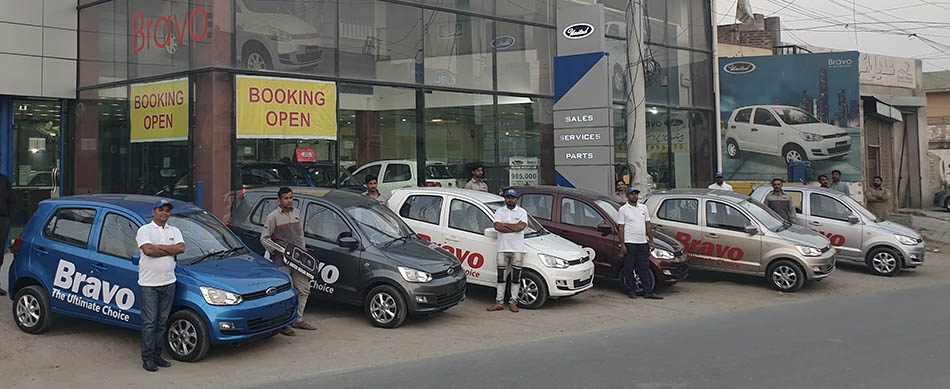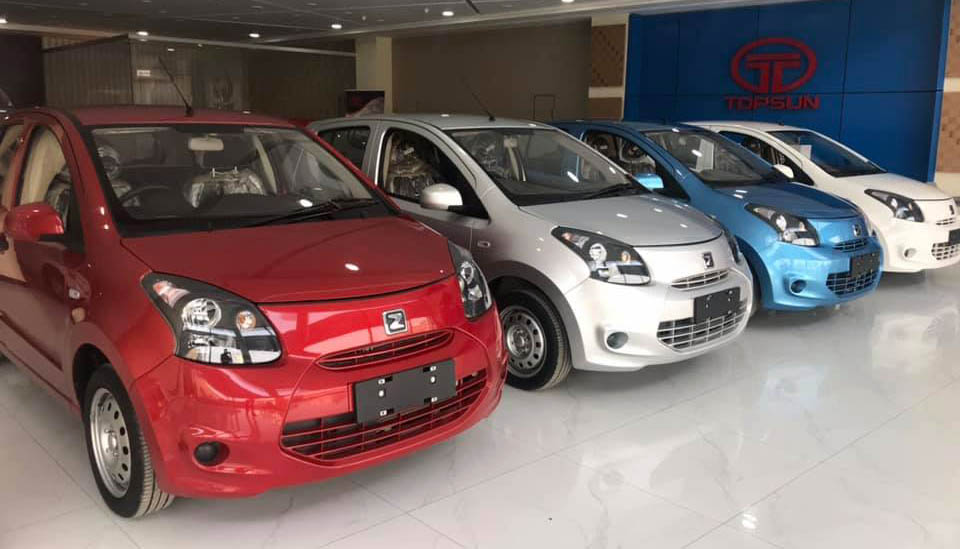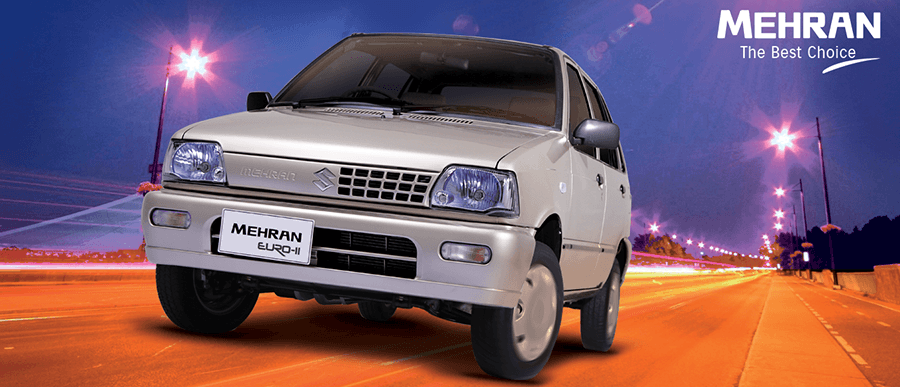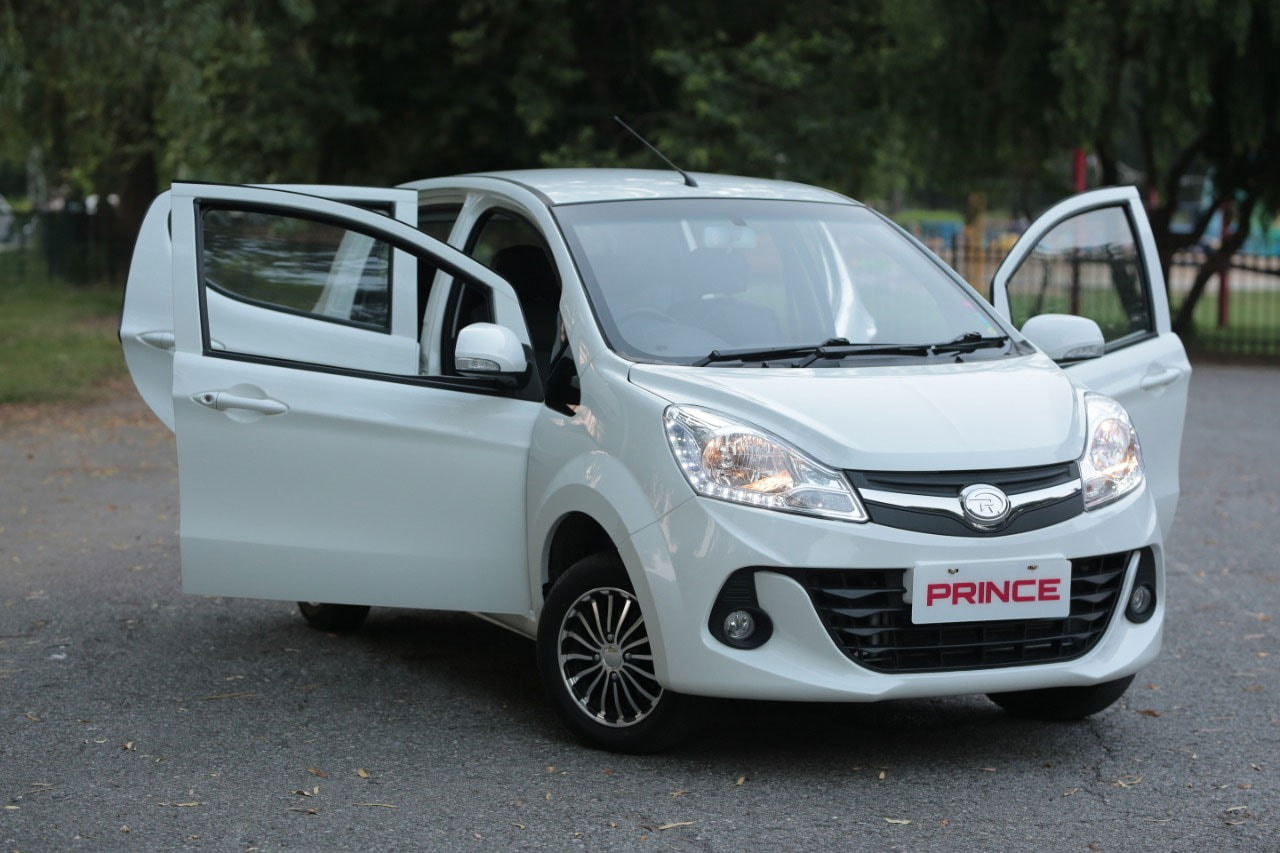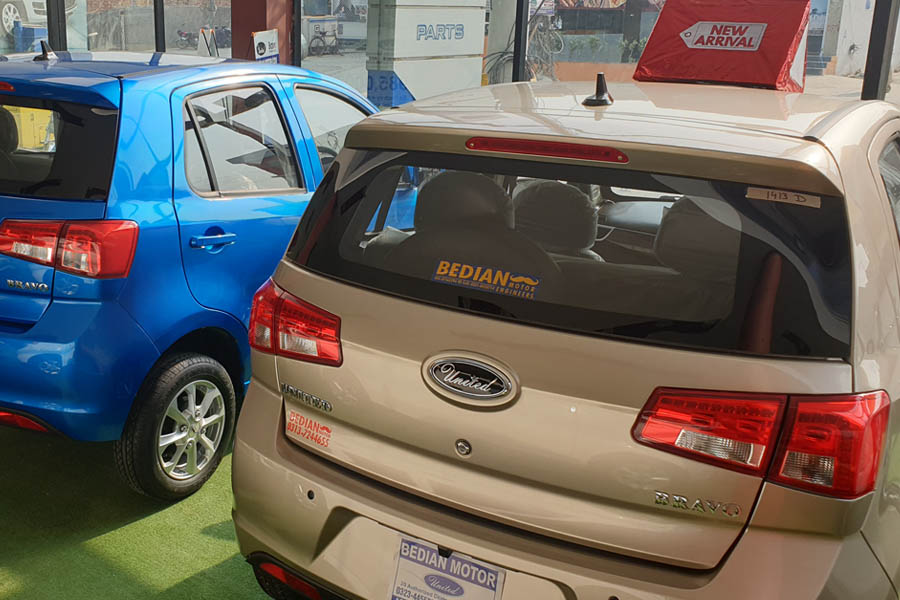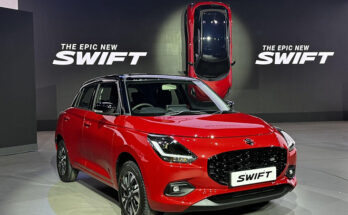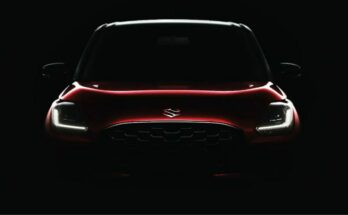Since the 1980s, Suzuki remains the only key player in the small car segment in Pakistan. Though during all these years, there were different options available in the shape of imported as well as locally assembled ones but none literally survived for long nor had the muscle to challenge the dominance of Suzuki in our market.
Related: Suzuki Alto- Sales Champion of H1-FY2019-20
Many blame the government for not creating a level playing field for other automakers to enter the market, as well as discouraging local players in favor of imports– remember Proficient? Then there are the oligopolistic practices of local auto assemblers which operate as a cartel safeguarding each others’ interests by not introducing any product that could rival those offered by Suzuki.
Although Suzuki products are cheaper to operate & maintain, efficient, and perhaps easy to get rid of too, however, they are largely blamed for inferior quality, being under-equipped, unsafe, poorly built, over expensive as well as obsolete in most cases. In recent years, prices of these rather obsolete & under-equipped cars went sky high which drastically dented the sales of Suzuki cars in Pakistan which are currently suffering from a 62% decline in sales. Nevertheless most Suzuki products never really justified the money they are being bought for.
To name a few, the company has been selling the Bolan van & Ravi pickup for nearly 40 years which are originally an iteration of the 1979 Suzuki Carry. The price of these ancient pieces of history has touched PKR 1 million already. Pak Suzuki has also recently discontinued the 2nd generation Alto– commonly known as Mehran after a span of nearly 30 years. In all these years apart from fuel injection, the car never got any enhancement whatsoever.
Related: Pakistan Auto Policy: What Needs to be Done?
The Auto Policy 2016-21 opened up doors for various automakers to explore our market. More than 12 automakers were in process of making an entry however due to volatile economic conditions and chameleon-like policies by the government which keeps on shifting ever so often, most of these companies are far from beginning their operations despite the policy entering its 4th year already. In fact, last year Renault announced to pull of its Greenfield investment while Nissan put the Brownfield Datsun project on hold. Though Hyundai and Kia having teamed up with financially strong conglomerates have started to operate, however, they are largely focused on introducing options that are beyond the reach of the masses. Kia did launch the globally retired 2nd generation Picanto model late last year but priced at a whopping PKR 2 million, the supposedly affordable hatchback is struggling to find buyers.
When Suzuki Mehran was discontinued, many thought it was time we said goodbye to the 30-year-old technology, people of this country were (in a way) forced to purchase since they had no other option available. However nobody knew the same tech, and the engine & transmission will continue to be the fate of Pakistani auto consumers. Two of the leading motorcycle manufacturers of Pakistan– United Automobiles and Regal Auto Industries Limited stepped into vehicle production, and introduced 800cc hatchbacks Bravo and Pearl respectively.
Both these vehicles look quite different from Suzuki Mehran of course, but technically they ride on the same platform and are powered by a Chinese replica 800cc Suzuki F8B engine that comes mated to the same 4-speed transmission that propelled Mehran. On a positive note, these vehicles offer modern gadgetry including a touchscreen multimedia system, reversing camera, power steering & power windows, digital speedometers, alloy wheels, and improved rear suspension– all of which were absent in Mehran, but at a price of PKR 1 million, both these cars fail to offer any safety equipment whatsoever.
Many also argue that in addition to the absence of airbags & ABS, these vehicles don’t even have a proper safety shell, no side impact beams, or any energy-absorbing mechanism whatsoever. This is primarily due to the fact that both United Bravo and Prince Pearl are replica products created by low-scale Chinese automakers and were available only in second and third-tier rural areas in China. Other than that they have literally no presence in any market around the world whatsoever.
One can appreciate the fact that at a price almost same as that of Mehran, the United Bravo and Prince Pearl are offering a lot of features that Pak Suzuki never considered introducing in a span of 3 decades. Still as far as the technology & more importantly the safety of occupants is concerned, both these cars are no different than their donor 2nd gen Suzuki Alto (Mehran).
Another automaker named Topsun Motors recently launched the Zotye Z100 in Pakistan. Being based on the 7th gen Alto that was produced between 2008 & 2013, the vehicle is relatively new compared to Bravo & Pearl but still rides on leftover Suzuki technology. Furthermore, it was discontinued in China almost 4 years before being introduced in Pakistan.
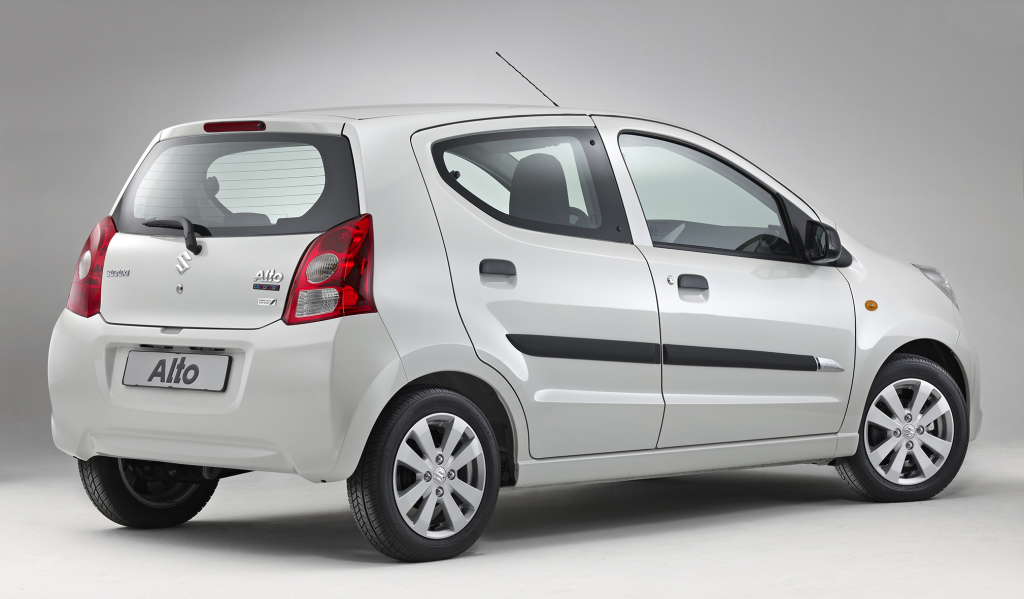
If you study, most Chinese automakers entered the vehicle manufacturing foray by replicating & reverse engineering popular vehicles. Suzuki was the prime target in smaller cars, whereas Toyota was there for compact & mid-sized models. And while few Chinese automakers which had collaborations with various international players had access to licensed technology, many just got their hands on it since copyright laws don’t really work well in China especially as far as vehicle piracy is concerned.
Related: Zotye Z100 Plus and The Need of Electric Vehicles in Pakistan
One of the reasons automakers don’t consider launching newer technology is the fuel quality available in Pakistan. While the world has already adopted sophisticated fuel & stringent emission standards long ago; we are still using a very obsolete fuel in Pakistan. Till a couple of years ago, Pakistan was the only country in the world alongside Somalia where RON87 fuel was sold. This concern was highlighted when Honda had to discontinue the 1.5L Civic Turbo variant which experienced problems running on the substandard fuel sold in Pakistan. Furthermore, the concern was also raised by Mr. Hideo Takenaka, the Executive Vice President of Sales and Marketing, at Hyundai Nishat Motor who said:
“We would like to bring more eco-friendly cars in this market. But such plans depend on the quality of the fuel available here. The low quality of petrol is a problem because it is not compatible with eco-friendly engines. We can import sensitive Euro IV standards (and higher) compliant cars if fuel quality is upgraded, even start assembly (of such vehicles locally) but for poor quality of fuel, a problem unique to Pakistan. We are still analyzing the market though…”
Pakistan still enforces Euro-2 emission standards which were officially phased out elsewhere by 1999- twenty years ago. Today most markets have started to adopt Euro-6 whereas developed countries have already announced their plans to move towards electrification and have announced to place a ban on internal combustion engines.
Unless the government takes serious measures to uplift the auto sector by implementing quality and safety standards, consumers cannot expect to get quality products available in other markets around the world. We are far behind compared to regional markets where consumers get modern, better, and safer products by paying half the price of what we pay. Safety, fuel efficiency & emissions should be prioritized instead of cosmetics, for which stern actions are needed to be taken for the betterment of the industry.
Coming back to the point, despite having a lower displacement engine under the hood, vehicles with older technology consume a lot of fuel as compared to modern vehicles. This also cast a negative impact on the country’s fuel import bill. While most markets encourage hybrids and have implemented mandatory fuel-saving tech such as eco-idling, regenerative braking, etc, we again lack the inclusion of any such tech in locally assembled vehicles.
From the looks of it, we are still stuck with the obsolete one way or the other, though it has been wrapped in new & attractive packaging now. Suzuki may have given farewell to Mehran, but its obsolete technology will stay with us for years to come. People again have no other option but to go for these cars in this budget since everything else has gone past the level of lunacy. Want to share your thoughts, feel free to use the comment section below.

A computer animation professional with over 23 years of industry experience having served in leading organizations, TV channels & production facilities in Pakistan. An avid car enthusiast and petrolhead with an affection to deliver quality content to help shape opinions. Formerly written for PakWheels as well as major publications including Dawn. Founder of CarSpiritPK.com

